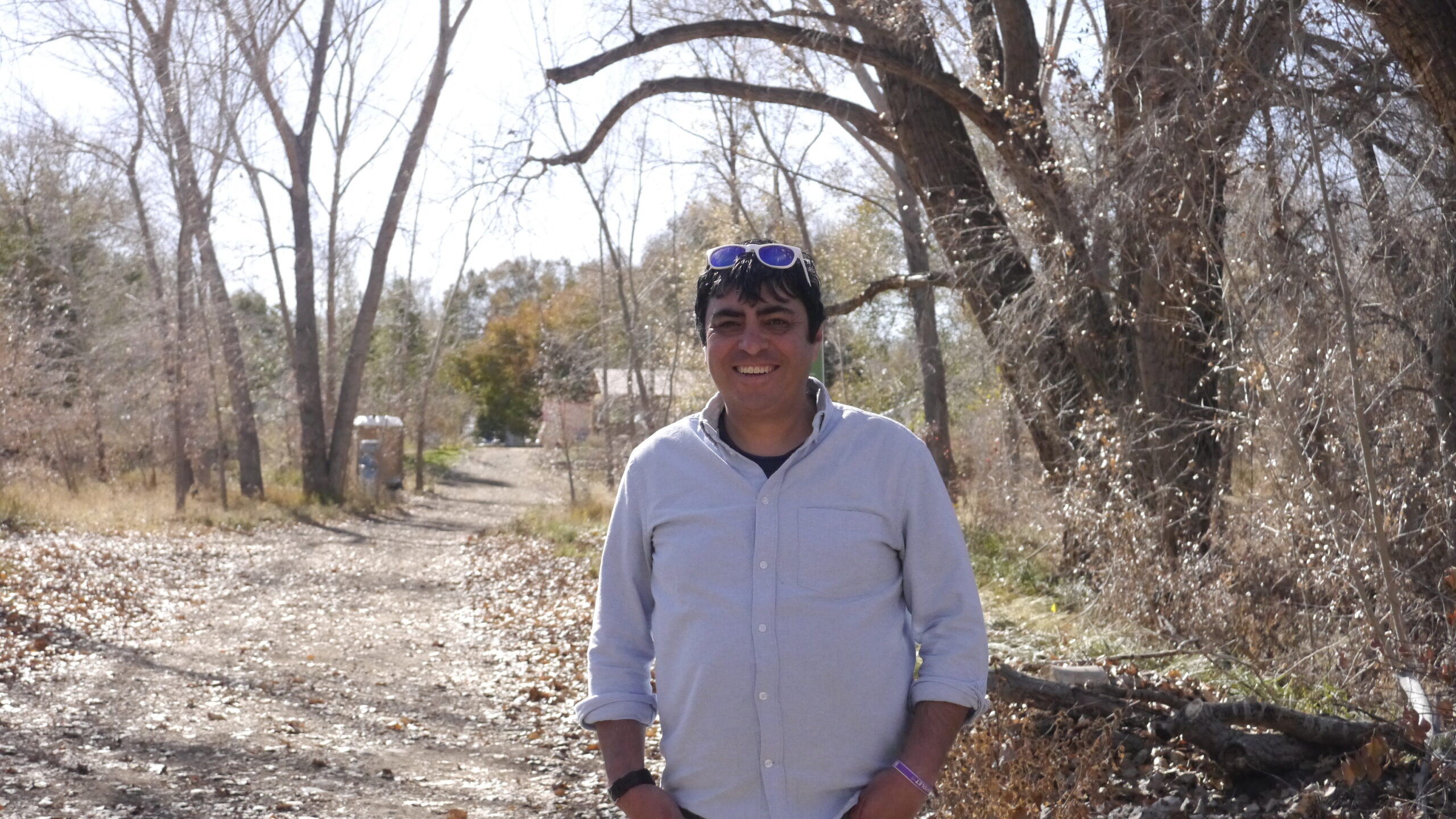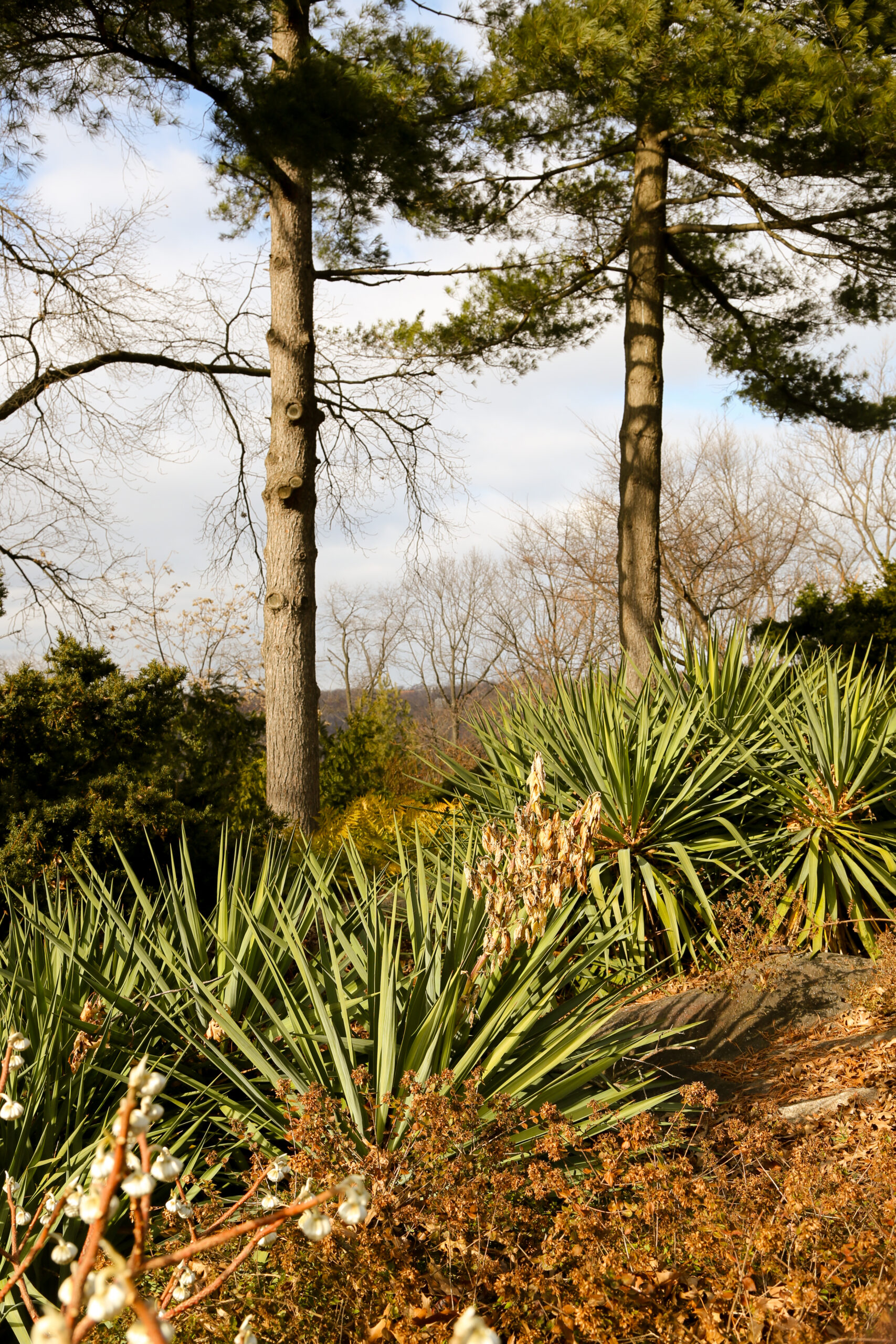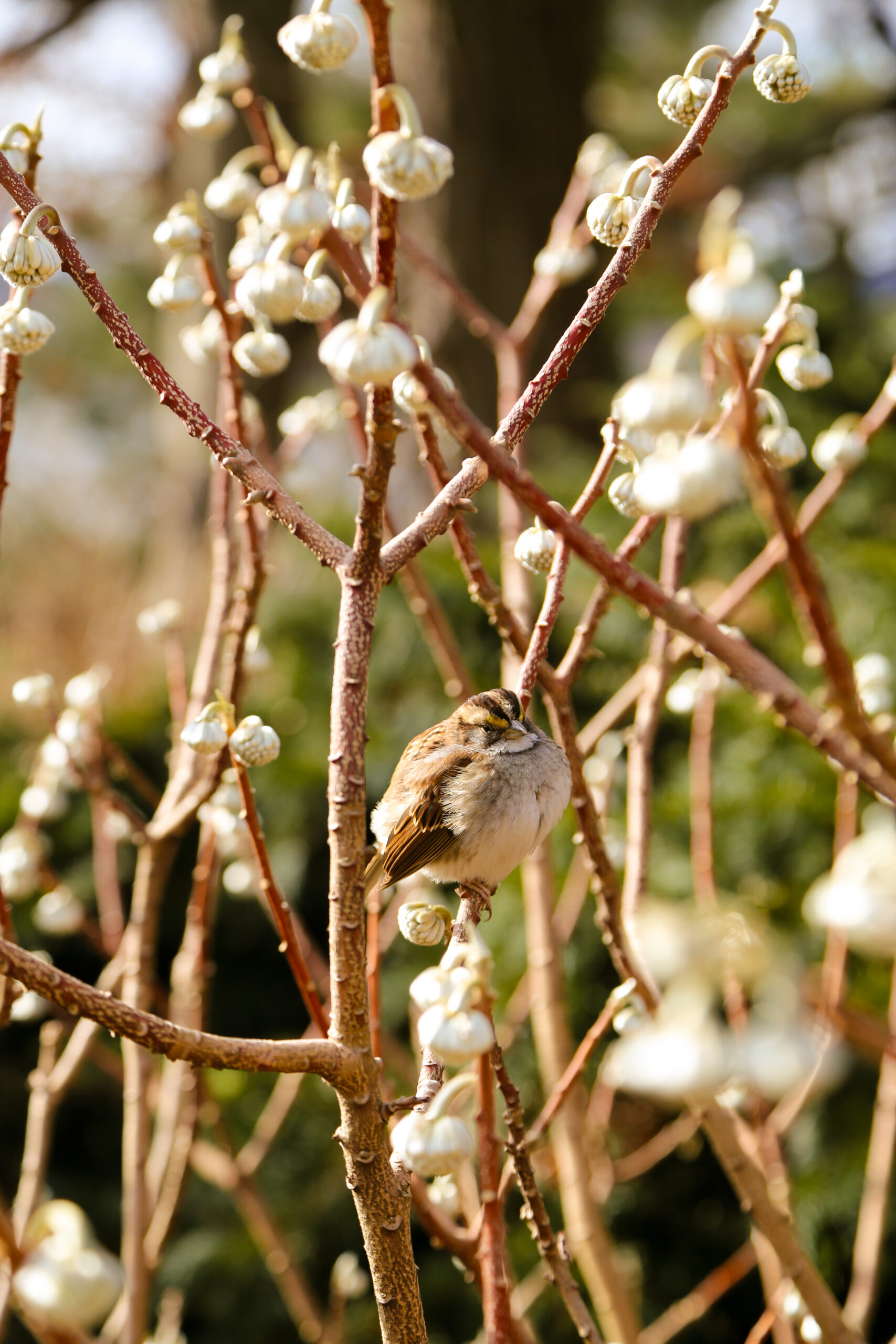The Village
Love Thy Neighbor, Honor Thy Land: A portrait of community leadership in the Southwest
By Ava Emilione
In the spring, Darien Fernandez grows corn, beans, and squash with students from the nearby Vista Grande High School. Known as “The Three Sisters,” or Diohe’ko, these plants were cultivated by the Seneca tribe for centuries, highlighting the potential of reciprocity and mutual aid. Once the corn stalk shoots up, the bean converts the soil’s precious nitrogen into nutrients, growing into a beanstalk that wraps around the tall, sturdy corn. All the while, the squash shades and protects the soil, allowing the sisters to flourish. In Braiding Sweetgrass, Robin Wall Kimmerer, a Potawatomi author and environmental scientist, says, “Being among the sisters provides a visible manifestation of what a community can become when its members understand and share their gifts. In reciprocity, we fill our spirits as well as our bellies.”
A month into road-tripping across the U.S., my partner and I camped near Taos, New Mexico—the site of the Taos Land Trust, a nearly forty-year-old nature conservation non-profit. Following the path of The Three Sisters, the Taos Land Trust demonstrates how three neighbors—people, land, and advocacy—can unite to build an intentional, space-based community. Land trusts, which build relationships while conserving land, offer an alternative to America’s broken food and social justice system.
Taos, a breathtaking town located in the high desert of The Rocky Mountains, is home to legendary ski areas, an artist commune, and the Taos Pueblo—a UNESCO World Heritage site and one of the oldest continuous communities in the U.S. Despite its popularity as a vacation spot for wealthy retirees, Taos is a spiritual center and home to centuries of Puebloan history and culture. Darien Fernandez, the trust’s Executive Director and member of the Taos Town Council, invited us to the Taos Land Trust for an afternoon. In the land trust’s office, a charming adobe with a full kitchen, he starts a fire and offers me a seat beside the wood stove.
Darien, who was born and raised in Taos, is dedicated to returning to his hometown’s land-based, Indigenous practices. He tells me that the land trust’s farming education program is a meaningful experience for Vista Grande students. Most students are people of color and many are close descendants of farmers.

Darien Fernandez, Taos, NM
Photo by Seeley August Björkstén
“A lot of the students that we serve at Vista Grande are… physically removed from that land, from that ability to grow,” Fernandez says. “They’re planting food, but they’re also connecting with their tradition.”
Once the breadbasket of the Southwest, Taos’ people lived off the land for centuries. The transition to a market-based economy and the development of large-scale capitalism destabilized the survivability of land-based practices, sending people away from Taos after World War II.
“Old timers will say, ‘We never realized we were poor until we had to start using cash to pay for food,’” Fernandez says.
Albuquerque and Santa Fe’s dense populations, which boomed during Taos’ era of out-migration, encroached on Taos’ rights to access water, further deteriorating the relationship between land and people. Decades later, the land itself told Darien to return to Taos and rebuild that bond.
“It’s a totally Taos thing to say,” Fernandez says. “But I felt like the mountain was calling me back, saying you need to come back here and help take care of things.”
How do you follow the mountains’ voice when they call you to be of service? What can be done to honor the land’s sacred call, which rings like a church bell in every inch of your being? For Darien, the answer begins with educating and engaging young people. Vista Grande High School is one of the land trust’s closest partners, and participants in the youth education program often go on to join the YCC Crew, a paid farming position that gives them first-hand experience with working the land. Soil health, water systems, and irrigation are key themes in the curriculum.
“We’re hoping to turn the tide and inspire a newer generation of farmers, a newer generation of land stewards,” Fernandez says. Building a basis of ecological knowledge gives young people a sustainable alternative to working in capitalist frameworks, empowering them to engage offline, grow food for their community, and live harmoniously with their natural environment.

Fort Tyron Park. Inwood, Manhattan NY
Photo by Kendra Shiloh Russell
As the next generation gains its foundation, Fernandez connects working farmers with material support. In Taos, farming—which requires an arsenal of tools and hours of manual labor—is not just a job. It is a way to exchange necessary resources and offer on-the-ground support. When a partner farmer injured his foot during the last harvest season, Darien rallied members of the YCC crew to harvest his corn as he healed. Now, the same farmer is lending his farm equipment to the land trust—a big favor for the spring when hundreds of seeds will be put into the ground.
The Three Sisters cannot truly thrive without quality soil, sun, and rain. Interconnectedness requires a foundation of resources to be sustained. Securing financial and administrative support is one of the biggest challenges for Darien, who is one of only three full-time members of the Taos Land Trust. Darien, Sarah Schildknecht, the Operations Director, Jim Johnston, the Working Lands Director and Rio Fernando Park Manager, and Nora Wicks, who supports education and farm programming, wear many hats to keep the trust running.
“Especially for a very values-oriented conservation organization, we’re not going to go out and take oil money or accept, like, donations of oil stocks or things like that,” Fernandez says. Offering low-cost programs, compensating young farmers for their work, and maintaining a full-time staff without large-scale institutional support is a continued weight on Darien’s back.
While state and federal grants constitute a significant portion of Taos Land Trust’s funding, the Trump administration’s blatant disregard of climate change poses a threat to these resources. Without political backing, community support is more important than ever to maintain the Taos Land Trust’s deep roots. Every hand that offers their time, resources, or labor to the effort helps Taos’ vegetable gardens bloom and rivers run free.
In most areas of society, the river of reciprocity does not flow as it should. Darien’s work is a testament to the power of bringing beings of all identities, both human and non-human, into a space-based relationship with one another. The Taos Land Trust’s work with the Rio Fernando River is a cornerstone of this relationship.
When the land trust inherited a portion of the Rio Fernando, the river was channelized for human use, suffering from stream bed erosion and the proliferation of weeds and invasive species. Once the river was neglected, native wildlife and pollinators fled to more inhabitable waters—a second out-migration that left the river lonely and sluggish. Today, Darien and other community members join their hands, shovels, and loppers to revitalize their section of the Rio Fernando River. Their work includes clearing ditches, testing water quality, removing noxious weeds, and conducting river cleanups. When Darien gave me a tour of the property, the river ran only a few feet behind the land trust office in a clear, steady stream. While preserving open spaces has notable aesthetic and practical benefits for humans, much of Darien’s work centers around the interests of his non-human neighbors. Now that the river flows as it once did, Darien is excited to see native birds, plants, and pollinators coming to the river again.
“We’re not the only ones occupying this space,” Fernandez says. “Why should we prioritize our own needs, our own vision over other species? We’ve all gotta pull from the same source of water,” Fernandez says.
“We're hoping to turn the tide and inspire a newer generation of farmers, a newer generation of land stewards.”
Redirecting community activism to focusing on revitalizing space, not only criticizing systems, is a pragmatic way to resist the market-based economy and other systems of oppression. The secret to making this change, Darien says, is simply showing up.
Education and awareness only go so far in meaningful action. We have to be as present, if not more so, than systems of neglect and marginalization, to unravel them. To be a good neighbor, we’ve got to show up, shovel in hand, ready to give our time and best effort to the cause.
“When we’ve got to go out and clean the ditches, it’s always a good reminder that there’s only so much that one person, one organization, can do,” Fernandez says. “If I’m not wanting to show up for them when they need help, what’s going to make them want to show up for me?”
The Taos Land Trust is an undeniable community presence and a full-fledged farming operation. The trust shares their John Deere tractor in pristine condition, a native plant garden run by The Native Plant Society of New Mexico, walking trails, three different types of compost, a produce wash station, a tilled field for growing crops year-round, a food forest, and an outdoor education space, with the public. The trust’s no-till seed drill has seeded 150 acres for small and mid-size farmers who can’t afford resources or aren’t large enough to be eligible for state grants. However, operating an agricultural hub is only part of the job. When Darien isn’t clearing ditches or fixing the tractor, he’s working on conservation easements to permanently preserve acres of land in New Mexico.
Conservation easements are agreements between a land owner and an organization, such as the Taos Land Trust, to protect open space and prevent land developments such as mining, logging, or construction. Used to preserve frosted and agricultural land from harmful extraction practices or commercial housing developments, these agreements legally protect land’s resources in perpetuity, but the owner retains property ownership. Taos Land Trust has preserved over 8,000 acres of land through conservation easements in an ongoing labor of community preservation.
However, landowners cannot be the only people who benefit from environmental protection. Land access is not just an opportunity to let wilderness run free—it’s a responsibility to the most overlooked members of the community. In Taos, where white retirees buy much of the area’s prime real estate for vacation homes, housing shortages threaten the diversity of one of the most culturally and historically rich towns in the Southwest.
“A sustainable community doesn’t just mean that there’s open space,” Fernandez says. “It’s got to be economically sustainable, it’s got to be culturally sustainable. If the work that we’re doing is pushing people out of the community, making the community less diverse, what are we really conserving?”

Fort Tyron Park. Inwood, Manhattan NY
Photo by Kendra Shiloh Russell
The Taos Land Trust serves as a bridge between residents to ensure that both environmental and cultural equity thrive in Taos’ future. Balancing nature preservation and accessible housing for Taos’ working class is an act of resistance against America’s skyrocketing rates of gentrification and housing discrimination—a balance that the trust strikes in big and small ways. The Taos Land Trust fundraises to purchase land to return to Indigenous communities. Darien is eyeing 44 acres that, if donated to the land trust, can be used for affordable housing developments, open space, and community gardens. While the Taos Land Trust monitors over 10,000 acres of land, Darien’s advocacy begins at a far smaller place: the dinner table.
In our conversation about meaningful community action, we kept coming back to food. Being fed on all levels—mind, body, and soul—is an act of gratitude and perseverance. This is not a metaphorical practice. When people show up for him, Darien makes sure they return to a plate of food.
“We do a lot of breaking bread. Just being able to sit down, pass a plate of food around, laugh, cry—it’s part of that human experience,” Fernandez says. “We want people to not just be fed the knowledge but also be physically fed.”
I asked Darien for his advice to someone looking to break bread and make change in their community.
“Think about your compass. Think about your values. Think about what you want to learn and what you can share,” he says.
“Look for organizations that line up with that and work with them. Just knock on their door.”
In a society that glorifies girl bosses, founders, and entrepreneurs, this is apt advice. In many ways, our focus on start-ups reinforces the myth of constant growth and prevents us from sustaining existing community efforts. We must resist the capitalist notion that being an engaged community member always involves starting something new when it often looks like deepening existing community bonds. How much more change could we enact if we released the pressure to be a founder and a leader and instead allowed ourselves to be a student, a resource, and a participant to those around us? What if we redirected our focus from being a good activist to being a good neighbor?
If no existing initiatives exist in your community, being a good neighbor is the first step to starting a new one. Darien suggests to “Have a meal, invite some people over, and start something from the ground up.”
Intentionally providing food, housing, and safety to your inner circle is a vital first step in doing the same for your community. It can be so easy to exist without intention in space, to simply respond to the systems around us in real-time instead of being mindful of our impact and relationships. Every shared space is different and every community member has unique skills to offer.
At the end of our interview, Darien sent me away with homemade bread and jam—a welcome gift for my partner and I, who were on our sixth day of camping in the forest of New Mexico where gourmet meals were few and far between. The bread was made by Sarah, Taos Land Trust’s Operations Director. The loaf of bread felt like an offering and a call to return the favor. This winter, I’ve made an effort to bake for my friends and family, following the Taos philosophy that breaking bread is the first step to building a future.
The Taos Land Trust is a harbinger of revolution and return. This organization, along with hundreds of land trusts across America, engages with the land as a long-lost relative, offering a practical alternative to market-based economies and the individualized hustle of late-stage capitalism. Seed by seed, ditch by ditch, and meal by meal, we can return to the land-based traditions of our ancestors and plant the seeds for a decolonial future.
In the words of Darien Fernandez, “Planning a garden is its own act of revolution. Controlling your food source is a way of controlling your destiny.”
This summer, my friends and I started a Three Sisters garden at a farm in New Jersey. After researching how to orient and organize the companion plants, two people tilled the garden bed, a third pulled out old roots from the soil, and a fourth brought us fresh compost soil to use. Once the bed was ready, my friends planted the corn and squash as I focused on the beans.
In September, the Three Sisters are ready for harvest. In a brilliant landscape of squash leaves, bright green corn stalks, and elegant, climbing bean plants, The Three Sisters are a testament to a space well-shared. Sustained by water and soil, they lean on each other to offer a feast to the very hands that put them in the ground. Such is gardening. Such is love. Such is a future of mutual trust. While we may not all have the ability or opportunity to clear ditches and prepare garden beds for spring, everyone has something to give and receive from the space they share with others. We all have ground out of which to grow.
•
Edited by Cheyenne Edwards